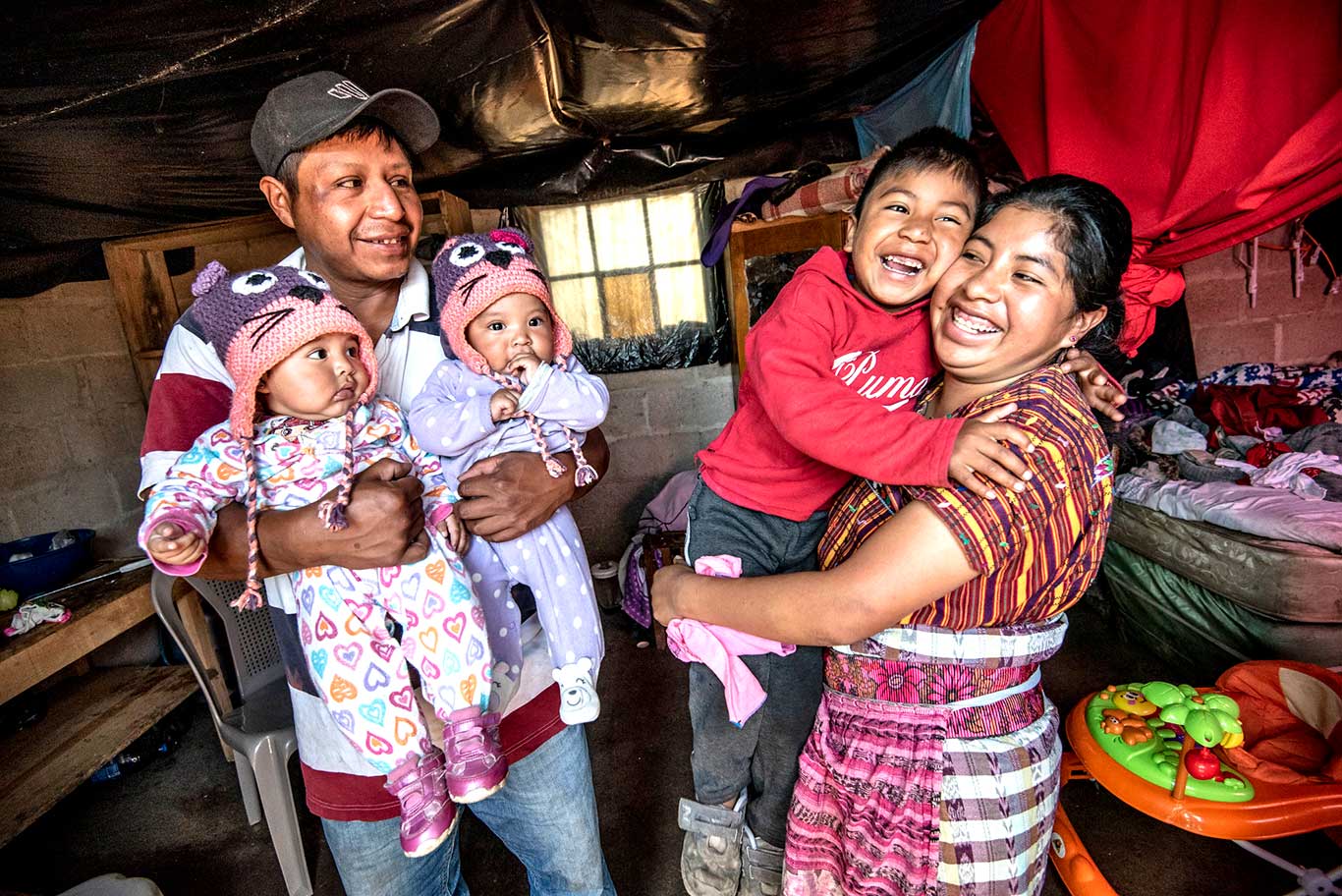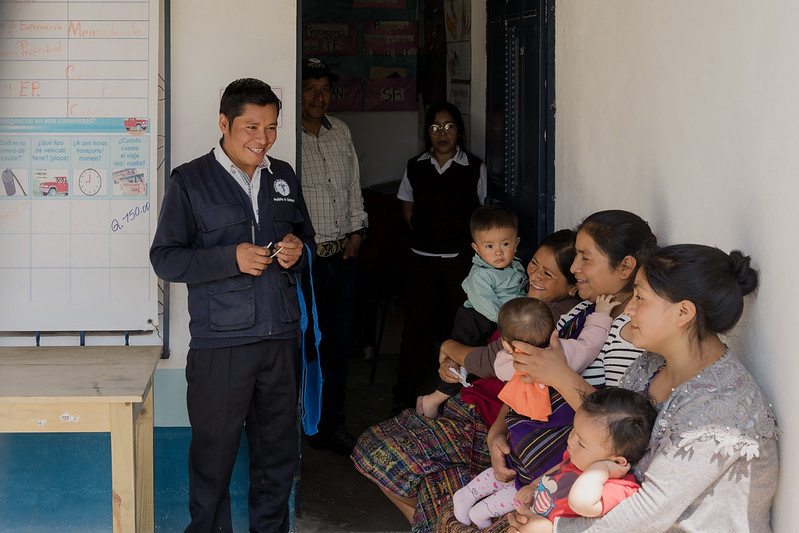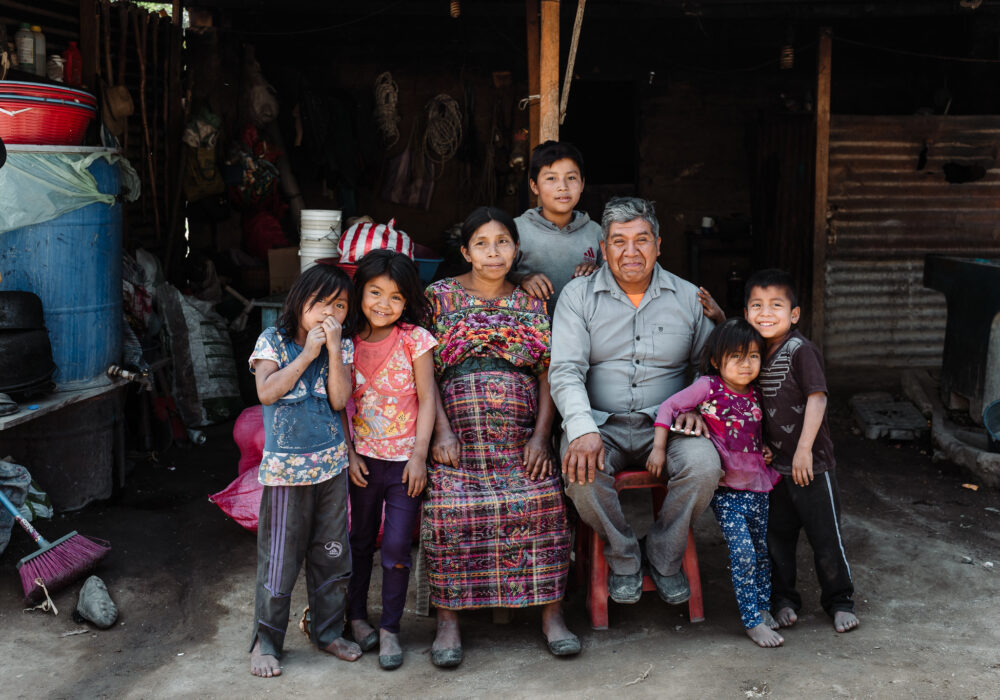Guatemala



Country Contact
Ana Garces, Country Director
Tel: 502-2428-9000
Jhpiego Guatemala
Avenida Reforma 7-62 zona 9
Edificio Aristos Reforma, Nivel 8, Oficina 813
Guatemala, Guatemala 01009
Current and Recent Donors
CDC
Unitaid
USAID
Since 1990, our focus has been on improving the health of Guatemalan families.
- Jhpiego supports expanded access to family planning through training of 842 health care providers in long-acting, reversible contraceptive methods.
- Jhpiego also supports improvements to maternal and newborn health care, including through successfully establishing midwifery as a career in Guatemala. As a result of Jhpiego’s efforts, midwives are providing quality, culturally relevant maternal health services throughout Guatemala, and additional midwifery candidates are enrolled in the degree program.
- Jhpiego is expanding cervical cancer prevention and treatment including increasing innovative HPV screening approaches and treatment techniques.
- Jhpiego supports the Government of Guatemala in implementing a One Health approach by improving epidemiological surveillance and strengthening laboratory systems.

Our Work in Guatemala
Health and Nutrition Project (aka Proyecto Salud y Nutricion)
This five-year project seeks to increase access to and equitable use of high-quality, gender-sensitive and integrated nutrition and reproductive, maternal, newborn, child and adolescent health services (including family planning and water, sanitation and hygiene) in the Western Highlands of Guatemala. In all of these technical areas, PSN supports health workforce training and provides evidence-based training and mentorship models to strengthen the health workforce. It also works with district and local teams to conduct health facility assessments and supports the development and monitoring of continuous quality improvement plans that address training needs. At community level, PSN supports community outreach workers to implement the Wheel of Practices for Better Living, a strategy that consists of regular household visits to monitor, counsel and follow-up on 19 essential nutrition and health practices. The project also aims to institutionalize and scale up evidence-based approaches to gender norms transformation across the health system by working with the MOH to incorporate gender training into the pre-service curriculum, supporting gender training for district stakeholders, and conducting and disseminating results from a study on gender-related barriers and constraints to health. PSN is also working with Da Vinci University to develop a gender certificate program and to integrate it into in-service training for secondary and tertiary level health providers. At community level, PSN implements “Program P” methodology for male engagement in leading gender transformation. Jhpiego is implementing this work, funded by the U.S. Agency for International Development, in partnership with Instituto de Nutrición de Centroamérica y Panamá (INCAP), Asociación de Servicios Comunitarios de Salud (ASECSA) and Project ECHO.
Scale Up Cervical Cancer Elimination with Secondary Prevention Strategy (SUCCESS)
Unitaid is funding a consortium, led by Expertise France, that seeks to eliminate cervical cancer in Burkina Faso, Côte d’Ivoire, Guatemala and the Philippines through secondary prevention (i.e., detecting disease early to slow or halt its progress). The three-year SUCCESS project is designed to shift the countries from a largely opportunistic cervical cancer screening model to a systematic approach centered on innovations related to: 1) reinforced and simplified cervical cancer screening through the introduction of human papilloma virus (HPV) testing with self-collection sampling; 2) secondary prevention of cervical cancer including use of efficient methods for treatment of cervical precancerous lesions such as thermal ablation; and 3) intensified dissemination of information on cervical cancer and new preventive technologies. In so doing, SUCCESS aims to support countries to “leapfrog” to a state-of-the-art services model recommended by the World Health Organization. As the implementing partner of the consortium, Jhpiego is integrating and expanding cervical cancer prevention and treatment services into both new and existing platforms, relying on our established relationships with governments and stakeholders in all four countries. In Guatemala, Jhpiego is supporting the Ministry of Health to expand integrated HPV testing approaches and use of thermal ablation in reproductive health and HIV service delivery settings and is leading demand generation and awareness raising efforts for cervical cancer prevention and treatment across the country. Jhpiego trains health care providers in secondary prevention through thermal ablation, and aims to provide HPV screening for 40,000 women.
Enhancing Global Health Security: Expanding Efforts and Strategies to Protect and Improve Public Health Globally
Funded by the U.S. Centers for Disease Control and Prevention (CDC), this five-year project builds upon activities funded by CDC to support Global Health Security through implementation of programs and activities that focus on protecting and improving health globally through partnerships with Ministries of Health and other institutions. With an initial emphasis on addressing the COVID-19 pandemic, the project is supporting countries—including Guatemala—and carrying out regional work in West Africa and South America to improve prevention of avoidable epidemics, including naturally occurring outbreaks and intentional or accidental releases of dangerous pathogens, and to improve ability to detect threats early and respond rapidly and effectively to public health threats of international concern. The project is being implemented by a Jhpiego-led consortium that includes the Johns Hopkins Center for Health Security, the Johns Hopkins University Applied Physics Laboratory, Global Scientific Solutions for Health, and Johns Hopkins University Center for Global Health. In Guatemala, Jhpiego is providing technical assistance to the Ministry of Health, national health information management system (SIGSA) and National Health Lab to design and roll out a national electronic reporting system that facilitates immediate reporting of results, standardizes the capture and processing of data, enables traceability and follow-up, and facilitates data transfer for increased accuracy and efficiency of results reporting.
Country Contact
Ana Garces, Country Director
Tel: 502-2428-9000
Jhpiego Guatemala
Avenida Reforma 7-62 zona 9
Edificio Aristos Reforma, Nivel 8, Oficina 813
Guatemala, Guatemala 01009
Current and Recent Donors
CDC
Unitaid
USAID







